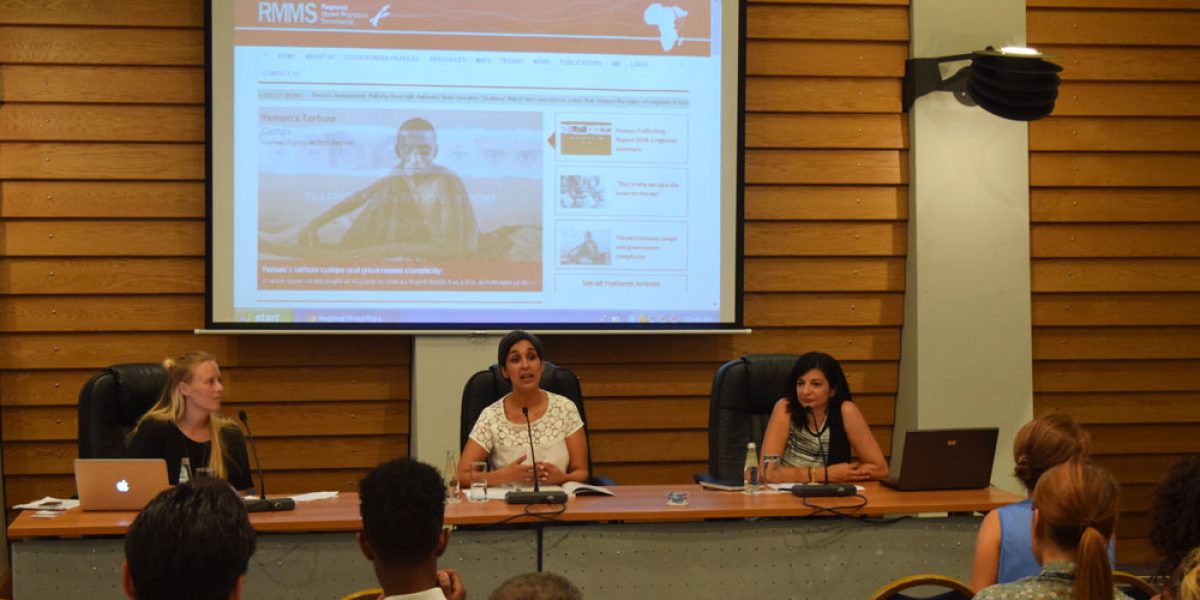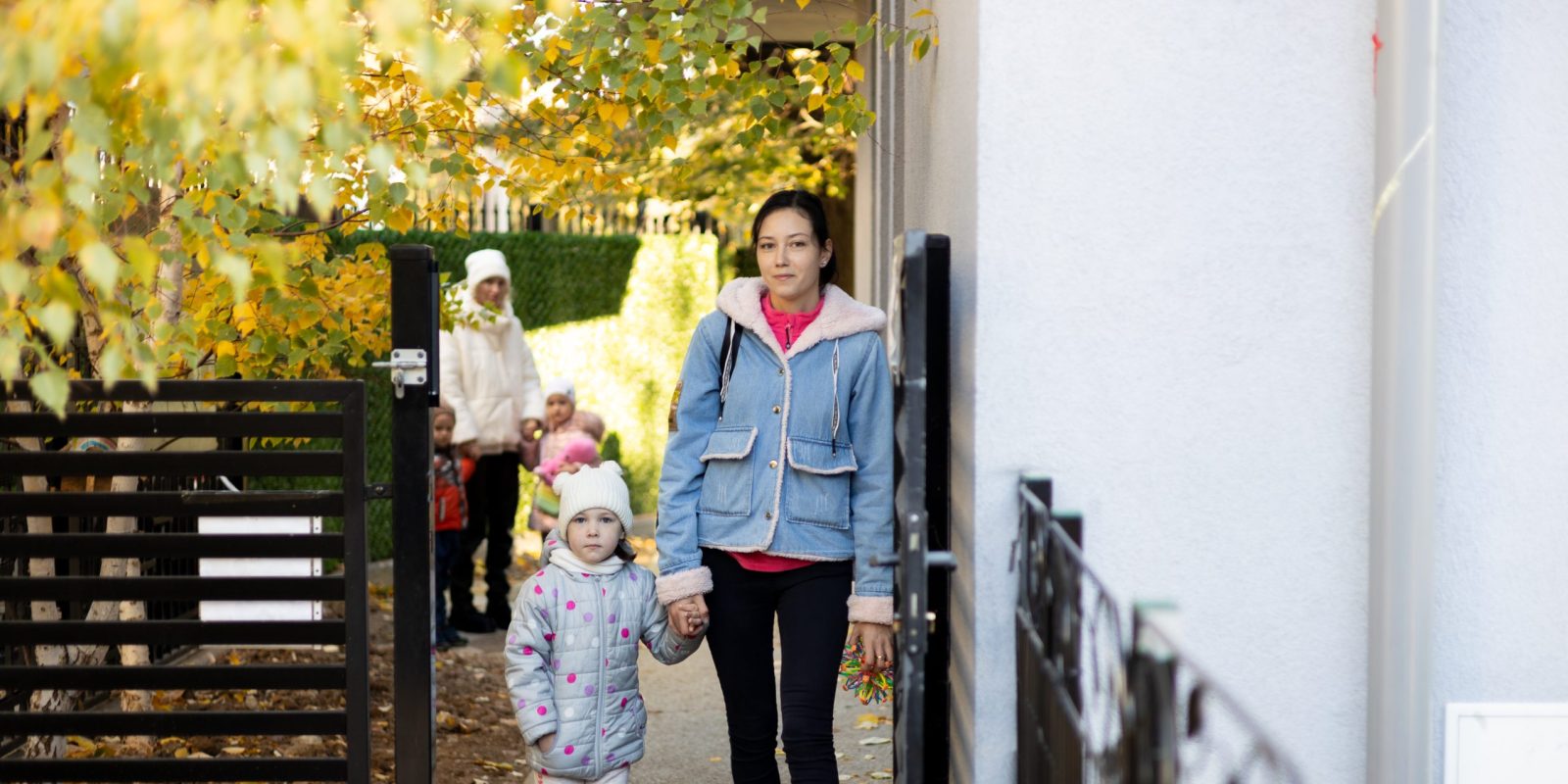
Valletta, 24 July 2014 – JRS Malta hosted the launch of ‘Going West’, a report on mixed migration from the Horn of Africa to Libya and Europe, based on extensive field research by the Danish Refugee Council (DRC) and the Regional Mixed Migration Secretariat (RMMS). The Mediterranean Conference Centre in Valletta was full as a lively discussion and debate ensued.
On the panel were Dr Melissa Phillips, RMMS mixed migration project manager, Marie Groth Kruse, DRC program officer, and Dr Katrine Camilleri, Director of Jesuit Refugee Service Malta.
Ms Kruse has spent a total of six months in Libya visiting government-run detention centres and documenting the conditions forced migrants face in the country. She reports that dialogue with the authorities is improving, but conditions inside the detention centres remain poor.
On the difficult work itself, Ms Kruse simply states ‘travelling to the centres is a security risk’. The whole Danish Refugee Council team, along with workers from other NGOs, were recently evacuated from Libya as the security situation deteriorated even further.
Access to healthcare for migrants remains extremely limited and when they do manage to get to a doctor they are often left facing hefty medical bills. Caritas has a drop-in clinic in Tripoli run by two nuns and there are often long queues of migrants waiting to be seen.
Libya has neither signed the UN Refugee Convention nor reached any official agreement for UNHCR to operate on its territory. This means that the chances for refugees to receive protection in Libya are virtually non-existent.
As documented in the JRS report ‘Beyond Imagination’ sub-Saharan African migrants face widespread abuse in Libya, from labour exploitation through to physical violence and even torture. Many of the detention centres in Libya are run by militia groups who rule by the gun.
It is no surprise that people keep moving in order to find the safe life they are seeking. As Dr Phillips pointed out the causes for flight are multi-layered and interlinked: a migrant may face economic and social insecurity as well as political persecution. Moreover, forced migrants are often victimised in different ways at different stages of their journeys.
“People keep on moving until they find the protection that they need,” confirmed Dr Camilleri. Until more effective protection mechanisms are developed and implemented by the EU, desperate people will continue to risk their lives on the sea to reach Europe.
‘Going West’ is one of a series of reports published by the RMMS on mixed migration trends in the Horn of Africa.
People keep on moving until they find the protection that they need.

